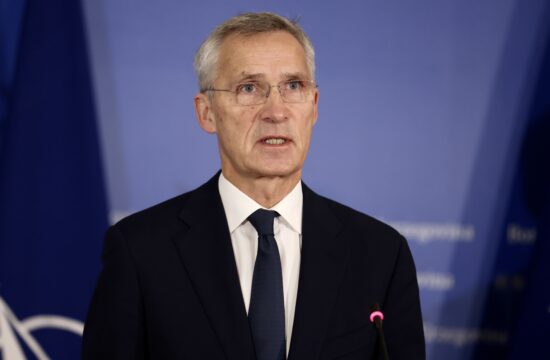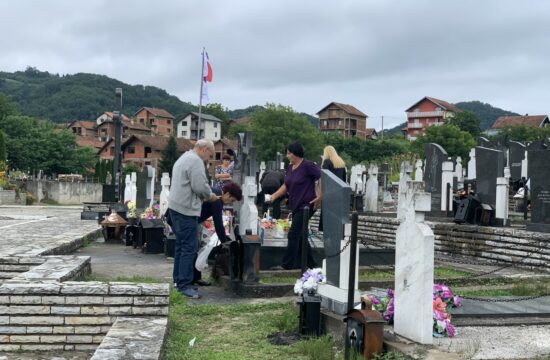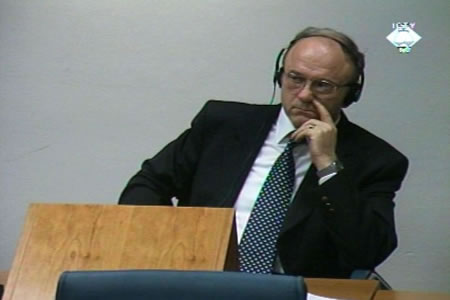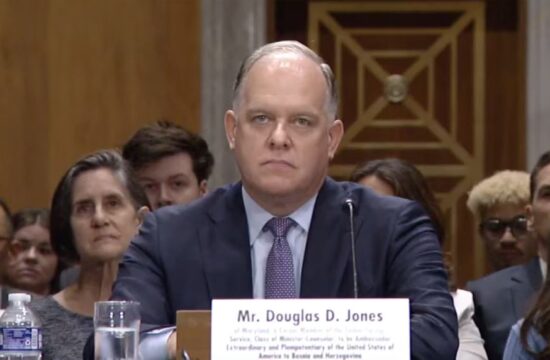Ethnic Croats in Bosnia and Herzegovina are not a minority, but the country is “their second homeland,” Croatia’s President, Kolinda Grabar Kitarovic, told media during a Monday visit to Mostar.
According to Grabar Kitarovic, the chances for meeting the preconditions for peace were slim without the wartime joint Croat-Bosnian military advances that were based on an inter-state agreement.
“Bosnia and Herzegovina is a very specific country, born under specific circumstances,” and the Bosniak-Croat agreement was crucial for the Dayton Peace Treaty to come about, she said.
Grabar Kitarovic said Croatia is and will remain one of the guarantors of peace and of the implementation of the Washington and Dayton peace treaties.
“We have the constitutional obligation to protect Croats abroad. In this case, those are national rights, as Croats in Bosnia are not a minority, this is their second homeland,” she said.
“As you could have seen in the European Commission Progress Report, the necessity of changing the Election Law is strongly emphasized, to ensure security and stability at all levels. We will continue to urge our colleagues in Bosnia and Herzegovina to move towards an agreement,” she said, adding that solving the issue is in best interest to Bosnia and it’s peoples.
Two years ago the Constitutional Court ruled that some provisions of the Election Law were inconsistent with the state Constitution. Since then the authorities have failed to act in the legally allowed time-frame, resulting in a further court ruling that deleted two sections of the Election Law that treats the matter of representation in the House of Peoples of Bosnia’s semi-autonomous entity which is shared by Bosniaks and Croats.
Bosnia’s Central Election Commission (CIK) announced elections for October 7 this year. Should the Election Law issue remain unresolved, the results of the election may not be legitimate, or implemented at all.
Bosnia’s political leaders, most notably from the main ethnic Croat party, the Croation Democratic Union (HDZ) and the main Bosniak party, the Party of Democratic Action (SDA), have failed to find common ground on the issue.
Croatia will also continue to advocate for Bosnia’s leaders to make decisions by themselves, without international mediators, Grabar Kitarovic said.




